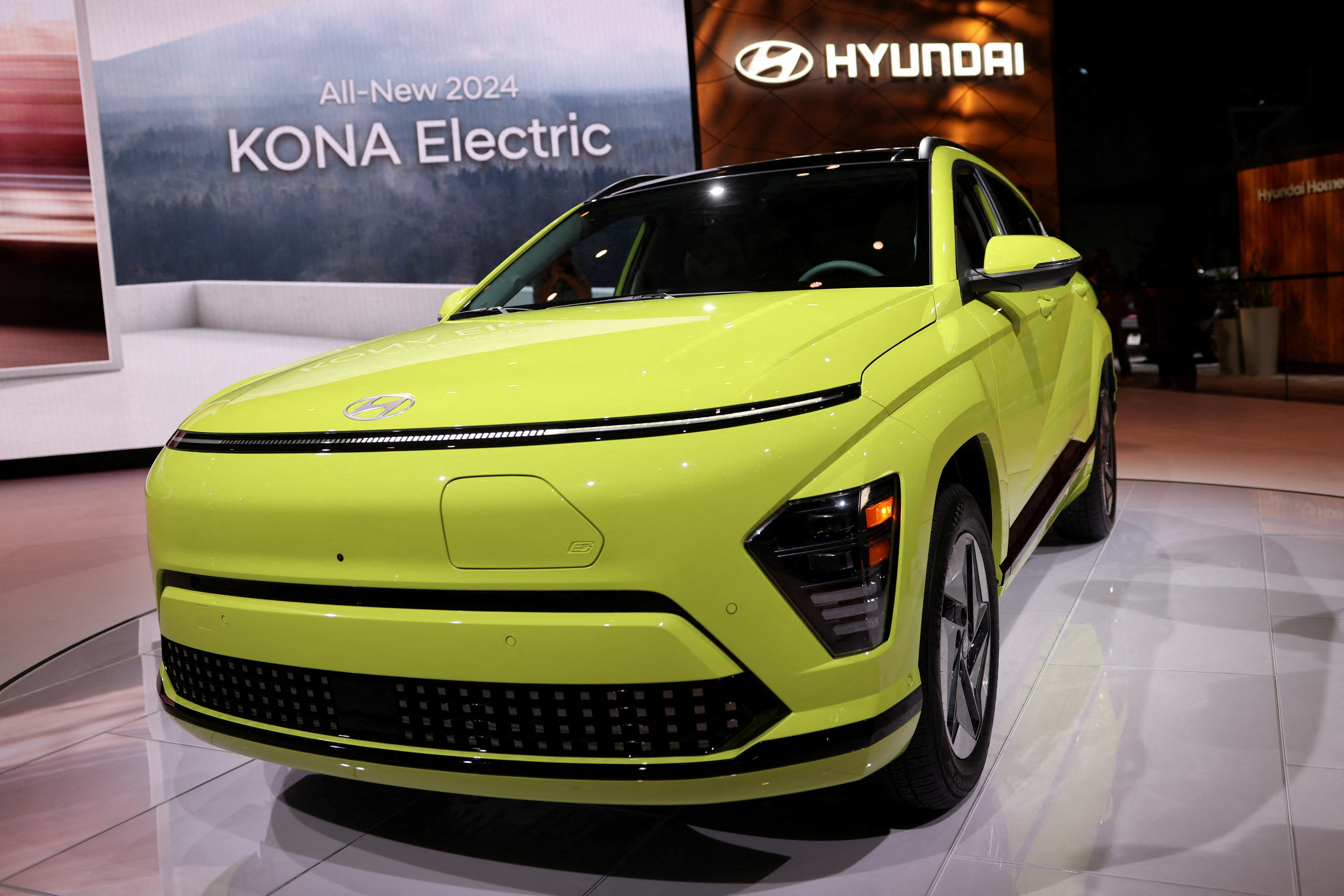
A Hyundai Kona electric vehicle is displayed at the New York International Auto Show, in Manhattan, New York City, U.S., April 5, 2023. REUTERS/Andrew Kelly/File Photo Acquire Licensing Rights
SEOUL, Oct 5 (Reuters) – Hyundai Motor (005380.KS) and Kia Corp (000270.KS)
said on Thursday that they had decided to adopt Tesla Inc’s (TSLA.O) electric vehicle (EV) charging technology in the United States.
Joining their global peers, including Ford Motor (F.N)
, General Motors (GM.N) and Nissan (7201.T) in adopting Tesla’s North American Charging Standard (NACS), Hyundai’s and Kia’s moves take the Elon Musk-led company’s superchargers closer to becoming the industry standard at the expense of the rival Combined Charging System (CCS).
Hyundai and Kia’s new EVs will come with a NACS port, starting in the fourth quarter of 2024 in the United States, the companies said.
However, in Canada, Hyundai EVs equipped with the NACS port would be available in the first half of 2025, while Kia’s EVs with the technology by the end of 2024.
The move gives Hyundai and Kia EVs with NACS ports access to more than 12,000 Tesla Superchargers across the United States, Canada, and Mexico, the companies said.
The South Korean automakers also said that they would offer adapters to owners of existing and future Hyundai and Kia EVs with the current CCS giving them access to Tesla’s Supercharging Network in the first quarter of 2025.
In June, Hyundai Motor said it would consider making its vehicles more readily compatible with the NACS charging system.
Tesla’s NACS is widely available, with the U.S. Department of Energy saying they make up about 60% of the fast chargers in the United States.
The rival CCS system is backed by automakers including Volkswagen (VOWG_p.DE), though the German company has held talks with Tesla about adopting the NACS.
In July, Hyundai said it would team up with companies including Kia, Stellantis (STLAM.MI) and BMW (BMWG.DE) to form a joint venture to develop an EV charging network in the U.S. to challenge Tesla and take advantage of Biden administration subsidies.
Reporting by Heekyong Yang; Nathan Gomes in Bengaluru, Editing by Christian Schmollinger and Shweta Agarwal
: .

